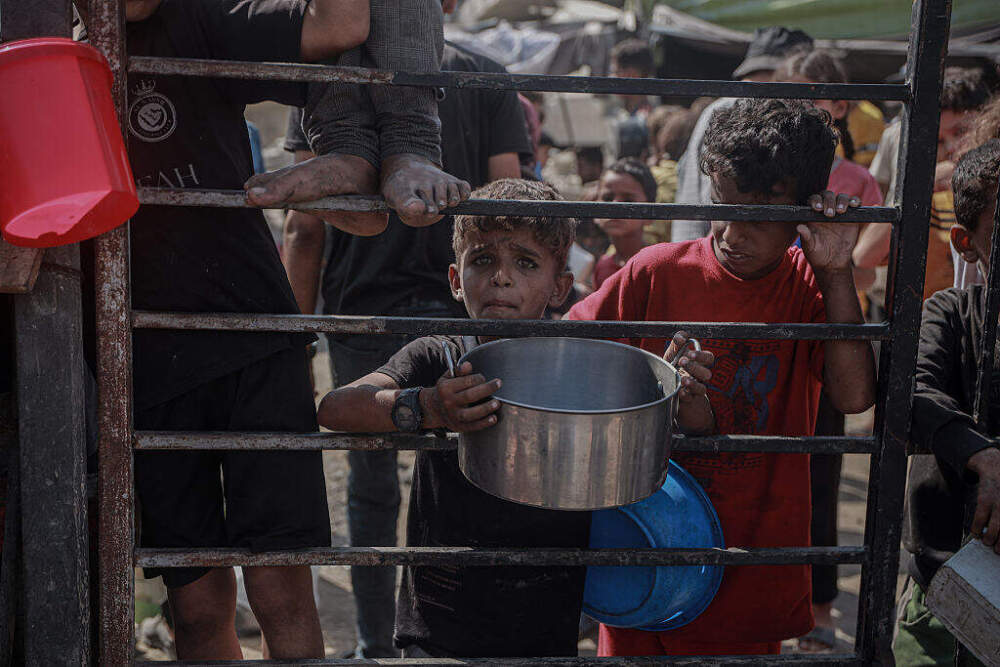
Last weekend, from sundown on Aug. 2 through Aug. 3, Jews around the world spent 25 hours fasting, mourning and remembering millennia of suffering. Considered the “saddest” day on the Jewish calendar, one reserved for somber contemplation, Tisha B’Av commemorates the destruction of the two Temples in Jerusalem, in the fifth century BCE by the Babylonians and the first century CE by the Romans, the most ancient of numerous other calamities and persecution perpetrated upon the Jewish people.
My Jewish identity is strong and deep, albeit more cultural and secular — I’ve dedicated my life to studying and teaching Jewish history. I collaborate with Jewish memoirists and historians, bringing diverse Jewish voices into classrooms through the teaching resources I develop. My commitment to inviting others to learn about Jewish peoplehood is unwavering.
And my commitment to teaching the humanity of Palestinians is also unwavering. It has been, since I was an undergraduate student — nearly two decades ago — when I began traveling to Israel and the West Bank, travels that would later take me to Jordan and Lebanon.
This year, as a Jew, I found it impossible to close my eyes and only grieve for Jewish pain. As Palestinians in Gaza are ravished by starvation and violence, it felt imperative that I look at this unfolding cataclysm directly.
This year, there was no need to turn my thoughts to the ancient past. A tragedy is occurring in our age that will echo across the generations, a tragedy defined by the images of emaciated Palestinian babies too frail to cry out in agony. The world is witnessing communal anguish en masse, in real time.
This year, there was no need to turn my thoughts to the ancient past. A tragedy is occurring in our age that will echo across the generations …
Tisha B’Av is steeped in collective memories of the diffuse trauma of Jews being uprooted and exiled: beginning with the ancients, and from England in the 13th century, France in the 14th century, and Spain in the 15th century, up through the Holocaust. But as I look towards Gaza today, the deaths caused by hunger are acute. This suffering is concentrated. Nothing about this deluge of misery in Gaza is diffuse.
On Tisha B’Av, there are no aesthetic adornments when mourning. Decorations are removed from the arc that houses the Torah in synagogues. Jewish men pray without tefillin or a tallit, foregoing the custom of donning their prayer shawls and the iconic leather straps used in morning prayer. In this spirit, we must discuss the crisis in Gaza without adornment, we cannot conceal it or dress it up in excuses or equivocation. The unvarnished horror of mass starvation and suffering must be seen for what it is — an unfathomable abomination that must not continue, yet which cannot be undone.
On Tisha B’Av this year, I couldn’t retreat into the pattern of annual mourning that has been part of Jewish life for millennia. There is a comfort in recounting narratives that place me and my community on the side of the righteous victims who have been wronged by those who wished harm upon our ancestors. But I found no comfort in this narrative and assigned role this year. The world is not composed of those who are absolutely virtuous and those who are absolutely villainous. I could not mourn for Jews this year without also recognizing a moral duty to be moved and affected by the plight of Palestinians.

Since visiting the West Bank in 2008 and spending the next decade and a half living in, traveling to, and cultivating relationships with Arab people throughout the Middle East, I have seen it as my responsibility to embrace and celebrate the humanity of those who are too often demonized. This investment in intercultural exchange emerged from — not despite — my Jewish identity and my own understanding of what it means to extend olive branches, heal the world and welcome the stranger. My work in education has always been the outlet for my desire to pursue justice.
Yet, as Palestinians starve in Gaza, there is a need to do more than simply value Palestinian life and build cultural connections.
At minimum, more Jewish spaces must become open to acknowledging the devastation being experienced by Gazans. Beyond that, we must take action on behalf of those in Gaza who are starving today before they are gone tomorrow.
I have grown too accustomed to reading and listening to Palestinians like Raja Shehadeh and Yousef Bashir as an end, rather than a means to spur on further action. I’m still finding my footing and orienting myself towards concrete interventions. But I’m inspired by the example of over 1,000 rabbis who have spoken out against the starvation of Gaza.
We are living through an age defined by conflict, rage and dehumanization, and it is our duty to cry out against the tendencies of our time. Jews must do more than mourn for past destruction — we must call for an end to today’s devastation. This call for action is inherently compatible with my Judaism. As a Jew, I believe this to be the ethical undertaking that defines this era.
Reference Link:- https://www.wbur.org/cognoscenti/2025/08/07/israel-war-gaza-starvation-malnutrition-daniel-osborn

